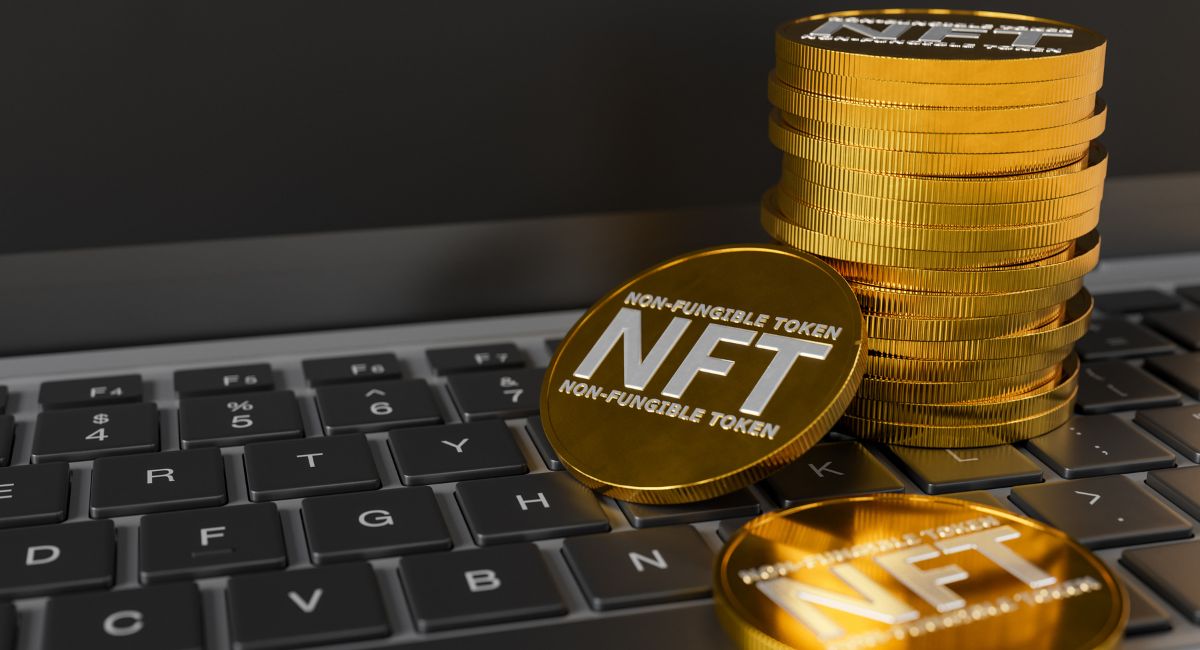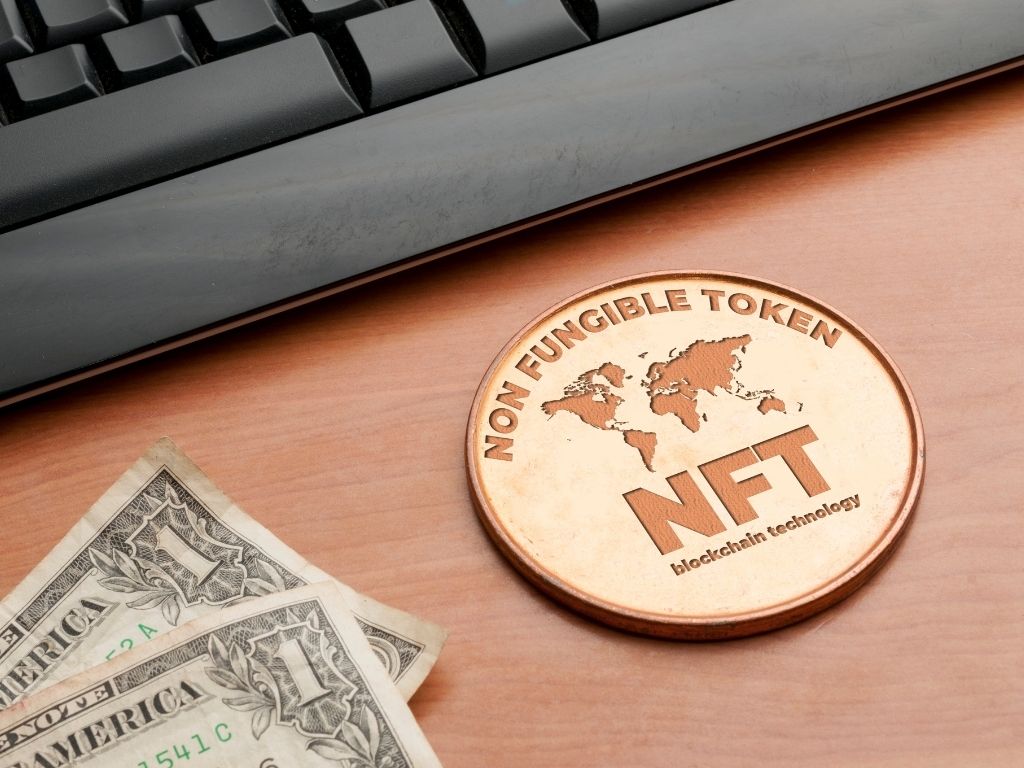Everything You Need To Know About Becoming An UI/UX Designer In NFT Industry
Becoming a UI/UX designer in the NFT industry is an exciting and dynamic career choice that combines the worlds of digital design and blockchain technology. In this article, we will explore everything you need to know to embark on this creative journey and thrive in the rapidly evolving NFT space.
Also, read – Top 10 NFT Projects Driving Innovation In Music
Top 10 things you need to do before starting as UI/UX designer in NFT industry
1. Understand the Basics of NFTs:
- #NFTs #Blockchain 💡
Before diving into UI/UX designer for NFTs, it’s crucial to understand what NFTs are and how they work. NFTs (Non-Fungible Tokens) are unique digital assets that are stored on a blockchain. These tokens represent ownership of a specific item, whether it’s digital art, collectibles, or virtual real estate. Familiarize yourself with blockchain technology and the concept of digital scarcity.
2. Develop Your Design Skills:
- #DesignSkills #Creativity 🎨
UI/UX designers in the NFT industry need strong design skills. Focus on honing your creativity, user interface design, user experience design, and visual storytelling abilities. NFTs often showcase stunning visuals, so your design skills will be your biggest asset.
3. Learn the NFT Marketplaces:
- #Marketplaces #Ethereum #BinanceSmartChain 🌐
NFTs are bought and sold on various online marketplaces like OpenSea, Rarible, and Decentraland. Understand how these platforms function, their user interfaces, and the specific design requirements they have for NFT listings and profiles.
4. Stay Updated on Trends:
- #Trends #CryptoArt 🔍
The NFT industry is fast-paced and constantly evolving. Keep an eye on the latest trends in crypto art, virtual collectibles, and blockchain technology. This will help you stay relevant and create designs that resonate with the NFT community.
5. Network within the Community:
- #Networking #Community 🤝
Building connections within the NFT community can open doors to exciting design opportunities. Attend virtual conferences, join NFT-related forums, and engage with artists and collectors. Networking can lead to collaborations and projects that showcase your design skills.
6. Experiment and Innovate:
- #Innovation #Creativity 💡
NFTs are all about pushing boundaries and exploring new possibilities. Don’t be afraid to experiment with innovative design concepts and technologies. Your unique and groundbreaking designs could gain attention in the NFT space.
7. Understand Copyright and Ownership:
- #Copyright #Ownership ©️
As a UI/UX designer for NFTs, you must be aware of copyright and intellectual property issues. Ensure that you have the necessary permissions or licenses to use certain images or assets in your NFT designs.
8. Collaborate with Artists and Developers:
- #Collaboration #Teamwork 👥
Collaborating with artists and blockchain developers is common in the NFT industry. Building strong working relationships with them can lead to successful NFT projects. Communication and teamwork are key.
9. Build Your Portfolio:
- #Portfolio #Showcase 📂
As you gain experience, create a portfolio showcasing your NFT design work. Potential clients and employers will want to see your past projects and the range of your design skills.
10. Stay Ethical and Inclusive:
- #EthicalDesign #Inclusivity 🌍
Lastly, always prioritize ethical design practices and inclusivity in your work. The NFT community values transparency and fairness, so ensure your designs align with these principles.
It was a great time working on this NFT project with the amazing @NFT__NG Team as the UI/UX Designer. A one of it’s kind in Nigeria. @NFT__NG project is a project bringing NFTs and Blockchain technology to the mainstream media. First of it’s kind in Nigeria. pic.twitter.com/3sIOeybFVA
— Captain Higram 𝕏 (@mistamojolarh) October 1, 2022
Other basics you need to learn as a UI/UX designer in the NFT industry:
1 Mastering UI/UX Fundamentals:
- #UI #UX #Fundamentals 📐
To excel in UI/UX design for NFTs, it’s crucial to have a strong grasp of the fundamentals. Understanding user interface principles, user experience design, wireframing, prototyping, and usability testing are essential. Consider enrolling in courses or online tutorials to solidify your foundational knowledge.
2 Specialize in Crypto Art and Collectibles:
- #CryptoArt #Collectibles 🖼️
While UI/UX design is a broad field, specializing in crypto art and collectibles will set you apart in the NFT industry. Study the unique design requirements for digital art marketplaces, including image optimization, aspect ratios, and metadata. Learn how to make NFTs visually appealing and discoverable within these platforms.
3 Navigating Smart Contracts and Blockchain Integration:
- #SmartContracts #Blockchain 🔗
Understanding how smart contracts work and their integration into NFT platforms is a valuable skill for UI/UX designers in this space. You may not need to be a blockchain developer, but having a basic knowledge of how NFTs are minted and transferred on the blockchain can help you design user-friendly interfaces.
4 Responsive Design for Virtual Worlds:
- #ResponsiveDesign #VirtualWorlds 🌐
Some NFT experiences occur within virtual worlds like Decentraland or Cryptovoxels. Designing for these environments requires a unique skill set. Focus on creating responsive and immersive designs that enhance user interactions in virtual spaces.
5 Compliance and Legal Considerations:
- #Compliance #LegalAspects 📜
The NFT industry is increasingly subject to regulations. Ensure your designs comply with legal requirements related to taxation, copyright, and intellectual property. Staying informed about evolving regulations will help you protect your clients and your work.
6 User-Centric Design for Wallets and Marketplaces:
- #UserCentricDesign #Wallets 💼
As NFTs become more accessible, designing user-friendly wallets and marketplaces is essential. Prioritize user-centric design principles, focusing on simplicity and security. Clear and intuitive interfaces will encourage more people to participate in the NFT ecosystem.
7 Keeping Pace with Technological Advancements:
- #TechAdvancements #NFTTech 🚀
The technology behind NFTs is continually evolving. Stay updated on advancements in blockchain technology, new NFT standards, and emerging platforms. Being on the cutting edge will make you a sought-after UI/UX designer in this rapidly changing field.
8 Building a Personal Brand:
- #PersonalBrand #NFTDesigner 🌟
In the competitive world of NFTs, building a personal brand is crucial. Share your insights, design process, and thoughts on social media platforms like Twitter, Instagram, or specialized NFT forums. A strong online presence can attract clients and collaborators.
9 Ethical Considerations in NFT Design:
- #EthicalDesign #NFTCommunity 🌍
As the NFT industry matures, ethical considerations become paramount. Be mindful of the environmental impact of NFTs, ensure the authenticity of the assets you design, and advocate for ethical practices within the NFT community.
10 Pursuing Continuous Education:
- #ContinuousLearning #NFTEducation 📚
The NFT industry is still in its early stages, and new opportunities and challenges arise regularly. Commit to lifelong learning by attending workshops, webinars, and conferences related to NFT design. Staying curious and adaptable will be your key to long-term success.
Had tried to convince many designers to come in crypto to solve UX problems in the early days of Matic.
Happy that they are now in crypto as NFT creators. Good start.
— Jaynti Kanani (JD) (@jdkanani) April 4, 2021
Becoming a UI/UX designer in the NFT industry is not just about creating visually appealing interfaces; it’s about understanding the unique dynamics of blockchain technology, virtual experiences, and user behaviors within this innovative space. Embrace these subtopics to refine your skills and become a standout NFT UI/UX designer.
Stay informed with daily updates from Blockchain Magazine on Google News. Click here to follow us and mark as favorite: [Blockchain Magazine on Google News].
Get Blockchain Insights In Inbox
Stay ahead of the curve with expert analysis and market updates.
latest from tech
Disclaimer: Any post shared by a third-party agency are sponsored and Blockchain Magazine has no views on any such posts. The views and opinions expressed in this post are those of the clients and do not necessarily reflect the official policy or position of Blockchain Magazine. The information provided in this post is for informational purposes only and should not be considered as financial, investment, or professional advice. Blockchain Magazine does not endorse or promote any specific products, services, or companies mentioned in this posts. Readers are encouraged to conduct their own research and consult with a qualified professional before making any financial decisions. The featured image used is just a creative depiction of the title and it does not intend to hurt sentiments of any person or institution. If it hurts anyone sentiments, please do not hesitate to reach out to Blockchain Magazine.

 Bitcoin
Bitcoin  Ethereum
Ethereum  Tether
Tether  XRP
XRP  Solana
Solana  USDC
USDC  Dogecoin
Dogecoin  Cardano
Cardano  Lido Staked Ether
Lido Staked Ether  TRON
TRON  Wrapped Bitcoin
Wrapped Bitcoin  Chainlink
Chainlink  Wrapped stETH
Wrapped stETH  Avalanche
Avalanche  Sui
Sui  Stellar
Stellar  Toncoin
Toncoin  Shiba Inu
Shiba Inu  Hedera
Hedera  LEO Token
LEO Token  Hyperliquid
Hyperliquid  Litecoin
Litecoin  Bitget Token
Bitget Token  USDS
USDS  WETH
WETH  Polkadot
Polkadot  Bitcoin Cash
Bitcoin Cash  Ethena USDe
Ethena USDe  MANTRA
MANTRA  Wrapped eETH
Wrapped eETH  Uniswap
Uniswap  Pepe
Pepe  Monero
Monero  Ondo
Ondo  WhiteBIT Coin
WhiteBIT Coin  Aave
Aave  NEAR Protocol
NEAR Protocol  Mantle
Mantle  Official Trump
Official Trump  Dai
Dai  Aptos
Aptos  Internet Computer
Internet Computer  Ethereum Classic
Ethereum Classic  Bittensor
Bittensor  OKB
OKB  Cronos
Cronos  POL (ex-MATIC)
POL (ex-MATIC)  Gate
Gate 




